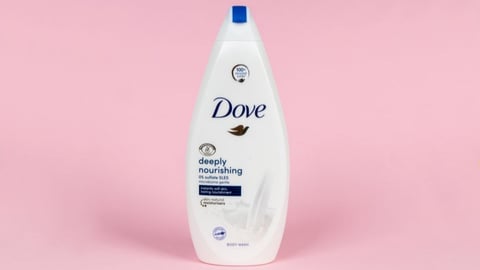5 Questions with Mars Wrigley CIO Romain Apert Tackle Data, Disruption & Digital Engagement
When Mars Wrigley CIO Romain Apert told the RCAS audience last year that the consumer goods industry’s traditional value equation model was failing because “it required that the world remain stable and predictable,” he hadn’t even included a pandemic as part of the equation.
And although Apert couldn’t have foreseen COVID-19, his call to adopt empathetic consumer centricity has only taken on far greater relevance as the industry navigates the health crisis. His feelings on this subject have both deepened and evolved in 2020, he tells CGT, as it’s been a year in which nothing has felt stable or predictable.
“I’ve been inspired by the consumer-centric approach to innovation that has emerged due to coronavirus,” he says. “It’s clear we’re living in a much more digital world, from the role of workplaces, telemedicine and e-learning.”
For consumer goods, Apert’s hypothesis that the value equation needed to shift is no longer science fiction, he says. “It’s science fact.”
Apert shared with CGT how Mars Wrigley is leveraging data during the pandemic, the company’s ongoing commitment to diversity and inclusion, and how it’s reimaging Halloween with a new Treat Town digital experience.
CGT: How is your team unlocking the power of data and analytics as it plots its COVID-19 roadmap? Are there other technologies the company expects to leverage to navigate these uncertain times?
Apert: Mars Wrigley associates are driven by their curiosity and hunger to unlock purposeful innovation. Momentum always starts with our 125,000 talented Martians across the business.
Technology is then an enabler. Data and analytics have helped us gain visibility into our supply chain, inventory and operations, as well as transform our short-term forecasting model. Where we would have relied heavily on historical sales in the past, we identified other signals that have far more of an impact on predicting the future.
In addition, automation is allowing machines to complete repetitive tasks that monopolize associate brainpower, so that our people can focus on more value-add work.
CGT: Embracing digital learning is a core tenet of Mars Incorporated and Mars Wrigley culture. How has this priority benefited the company this year, most especially during the health crisis?
Apert: Our associates’ willingness to never stop learning enables innovation and value creation at Mars Wrigley. It’s critical. With the pandemic, we saw associates adopt behaviors, build new capabilities and learn more about new technologies in weeks, where it may have taken months or even years before.
CGT: Likewise, Mars has a history of celebrating diversity and inclusion, and it’s been recognized for doing so. How can technology play a role in advancing a CPG company’s D&I mission?
Apert: Mars is committed to creating and enabling a workplace where our associates feel comfortable being their full selves at work and have an equal opportunity to thrive. We believe the decisions we make today will shape the world we want tomorrow, and that’s our approach to inclusion and diversity too.
If organizations across our industry want to lead meaningful change on this front, we all need to look in the mirror. I believe part is self-reflection and the other part is hard data captured by modern technology.
When the media began to publish stories about how coronavirus was shining a light on indisputable racial inequities, complete with shocking case numbers, how could anyone ignore the call for change? Data is powerful.
CGT: You’ve frequently expressed interest in the power of gamification and other “non-traditional” methods as teaching tools, and you have a passion for being a lifelong learner. What’s currently piquing your interest as a method or strategy for new learning and exploration?
Apert: I believe that if you want to learn, turn inward first and you’ll find a valuable teacher in yourself. To be successful, technologists engage in emergent learning — whether they fully realize or not. We self-reflect. We try to make sense of problems. We know bringing diverse voices to the table at the start will result in stronger outcomes at the end.
Cross-discipline learning can also unlock creativity and new perspectives. Amidst this pandemic, many people are channeling their anxieties and uncertainty into hobbies.
Personally, I’ve enjoyed spending more time playing guitar with my family. I read a great book about jazz music recently, because the art of improvisation fascinates me. There are many parallels between the arts, science, history and more that can change our ways of thinking about business.
CGT: Can you share any recent IT successes and their effects on the business? Are there any recent accomplishments, whether personally or by your team, that you’re especially proud of?
Apert: Here’s a real-time example. We recently announced Treat Town — an app-based digital experience for families to virtually trick or treat for real candy. The virtual Halloween portal will launch at the stroke of midnight on Oct. 1. We know our category can bring more smiles into the world, and that’s why we were compelled to reimagine what the Halloween season could look like for consumers this year.
I’m immensely proud of the way our Mars Wrigley teams developed Treat Town. Everything we’ve discussed — user centricity, creating value 100 times faster, emergent learning and diverse thinking — contributed to the launch of this seasonal app that enables our consumers to celebrate this historically traditional celebration, virtually.
The work won’t stop either; once it is live, you can bet we’ll be harnessing learnings for future moments that will make our consumers smile.
Learn more how data and analytics can power better decision making at Analytics Unite!







